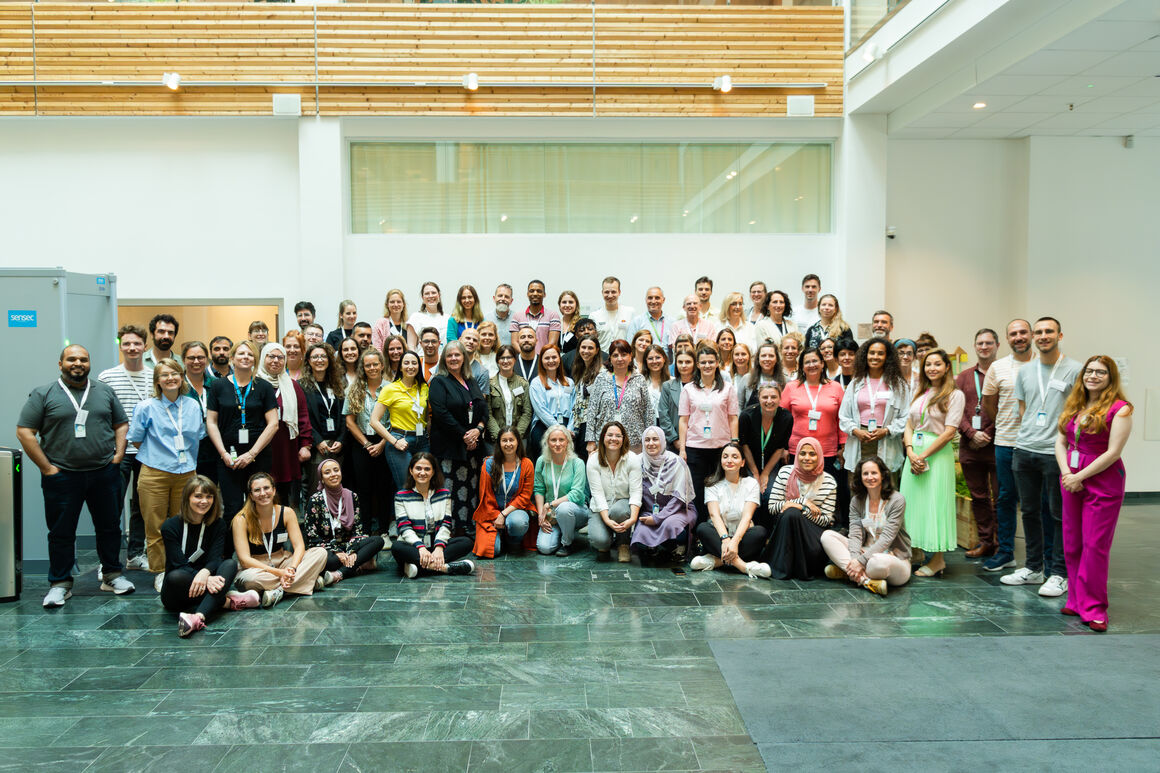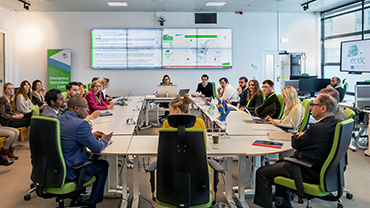Rapid Assessment and Survey Methods module in Stockholm
From 19–23 June, ECDC hosted the 2023 edition of the Rapid Assessment and Survey Methods (RAS) module for EPIET/EUPHEM, PAE, and MediPIET fellows in Stockholm, Sweden. The five-day training brought together around 60 participants, including 19 Mediterranean and Black Sea Programme for Intervention Epidemiology Training (MediPIET) fellows and four external experts from Bosnia and Herzegovina, Egypt, Montenegro and Azerbaijan.

The overall aim of the module was to prepare the field epidemiologists to contribute to surveillance, outbreak alert, and response during mass gathering events. The fellows learned how to apply sampling methods and techniques adapted to specific populations, contribute to the multidisciplinary and international response to complex emergency situations, and apply their epidemiological skills to serve public health interventions.
Fellows engaged actively in case study-based exercises on how to set up surveillance, outbreak alert, and response during mass gathering events. These included discussions on how to perform risk assessment, describe outbreak responses, apply risk communication strategies, and engage in intersectoral and cross-border collaboration.
They also learned how to conduct a survey and sampling, and how to carry out a rapid health assessment, applying the ECDC operational tool on Rapid Risk Assessment methodology to assess the risks of communicable disease threats.
The course was built around a number of real-life emergency cases from around the world.
After completing this course, fellows should be able to define, identify, and list mass gathering events and assess their successes and challenges. They should be able to set up surveillance, outbreak alert, and response, and apply risk communication strategies.
Furthermore, they should be able to describe the principles of surveillance, outbreak alert, and response, use the results of surveys to drive public health decisions, and identify public health priorities in complex emergency settings.
The module included interactive group work, plenary sessions, and practical field exercises.
MediPIET
The Mediterranean and Black Sea Programme for Intervention Epidemiology Training (MediPIET) aims to enhance health security in the Mediterranean and the Black Sea region. It does so by supporting capacity building for prevention and control of threats posed by communicable diseases through the implementation of a long-term regional Field Epidemiology Training Programme (FETP), Training of Trainers activities (ToTs), annual scientific events and other networking activities.
The MediPIET Cohort 4 and Cohort 5 consist of 32 fellows from 13 partner countries of the EU Initiative on Health Security.
The EU Initiative on Health Security is a five-year programme (2020–2025) aimed at enhancing the public health preparedness and response capacities of the European Union enlargement and the European Neighbourhood Policy partner countries.
EPIET/EUPHEM is a similar fellowship programme but targeted at fellows from the EU/EEA countries. The two-year ECDC Fellowship programme has two alternative paths: field epidemiology (EPIET) or public health microbiology (EUPHEM).
PAE is the Postgraduate Training for Applied Epidemiology (PAE) at the RKI.






